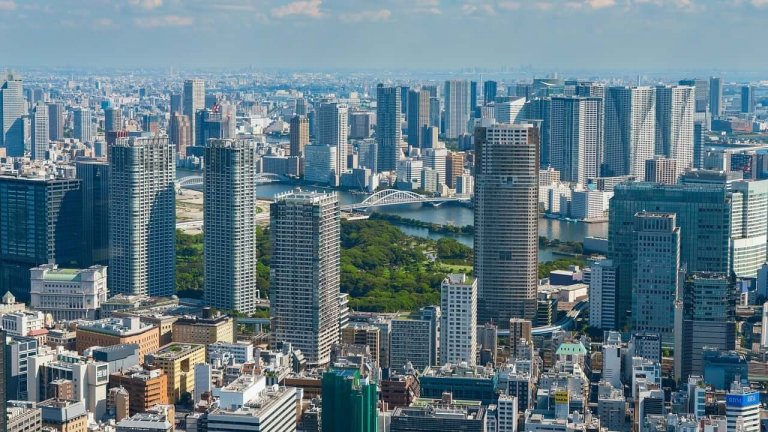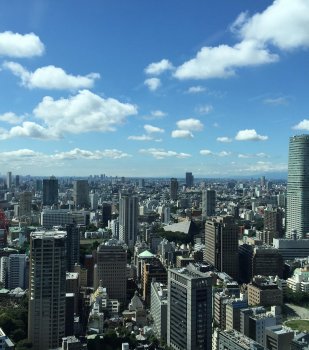Many people may wonder, “What kind of legal procedures are involved when a foreigner buys real estate in Japan?”
In addition to legal procedures, foreigners who wish to buy property in Japan often want to know more about the country’s unique rules regarding purchase restrictions, contract procedures, and taxes.
In this article, we will introduce the seven steps involved in buying real estate in Japan as a foreigner, including the legal process.
We will also explain the key points to keep in mind when foreigners purchase real estate in Japan, so please use this as a helpful reference.
Are There Any Restrictions for Foreigners Buying Real Estate in Japan?

In Japan, there are no restrictions on foreigners purchasing real estate. Foreigners are also free to sell, gift, or inherit property.
However, under the Act on the Review and Regulation of the Use of Real Estate Surrounding Important Facilities and on Remote Islands (Important Land Investigation Law), purchases of properties located near borders, defense facilities, or other designated “Monitored Areas” or “Special Monitored Areas” require notification to the Cabinet Office, and there may be restrictions on how the property can be used or investigations into ownership.
Additionally, when purchasing agricultural land in Japan, the Agricultural Land Act applies, and you must obtain permission from the local Agricultural Committee.
7 Steps for Foreigners to Buy Property in Japan

The process of buying real estate in Japan as a foreigner consists of the following seven steps:
- Find a real estate agency
- View properties and submit a Letter of Intent (Purchase Application Form)
- Confirm payment method
- Receive an Explanation of Important Matters
- Conclude the Sales Contract
- Register the Transfer of Ownership
- Submit a Notification to the Minister of Finance
Below, we will explain each of these seven steps in detail.
Step 1: Find a Real Estate Agency
When buying real estate in Japan, the first step is to find a real estate agency.
To proceed smoothly, it is best to choose an agency that offers services specifically for foreigners.
- Such agencies typically provide:
- English-language support
- Specialization in luxury or investment properties
Detailed explanations and guidance on the Japanese purchasing process
With these services, foreigners can complete transactions safely and with confidence.
At APARTMENTS TOKYO, we provide extensive support for foreign buyers, offering a wide range of premium property listings and English-language assistance throughout the entire purchasing process.
If you fill out our inquiry form, we will introduce properties that best match your preferences and requirements.
Step 2: View Properties and Submit a Letter of Intent
After viewing the properties introduced by your real estate agency and deciding which one you would like to purchase, you will need to submit a Letter of Intent (Purchase Application Form).
This document formally expresses your intention to purchase the property to the seller.
Fill out the form provided by the agency, including your name, address, employer, annual income, property details, desired purchase price, preferred contract date, and payment method.
Step 3: Confirm Payment Method
Next, discuss and confirm your payment method with the real estate agency.
There are two common ways for foreigners to pay when purchasing real estate in Japan:
- Overseas remittance
- Cash payment
Even if you do not have a Japanese bank account, you can still transfer funds from your overseas bank to the account designated by the real estate company via international remittance.
Step 4: Receive an Explanation of Important Matters
Before signing the contract, you are legally required to receive an Explanation of Important Matters (Juyo Jiko Setsumei) as mandated by Japan’s Real Estate Brokerage Act.
This explanation is given prior to the contract signing and outlines key information about the property and the transaction terms, based on a written document called the “Explanation of Important Matters.”
Step 5: Conclude the Sales Contract
After receiving the Explanation of Important Matters, you will proceed to sign the Sales and Purchase Agreement.
You will need to prepare the following documents in advance:
- Photo identification (passport, residence card, etc.)
- Certificate of signature (or seal certificate)
- Certified copy of company registration (if purchasing as a corporation)
During the contract meeting, both parties will review the contents of the agreement together. Once there are no issues, the contract is formally executed.
You will then fill in your address and name on each document, affix your signature or seal, and pay the deposit and agent’s commission to the real estate company.
Step 6: Register the Transfer of Ownership
When buying or selling real estate in Japan, a Registration of Ownership Transfer (Shoyuken Iten Toki) is required.
This process officially records the transfer of ownership from the seller to the buyer in the property’s registration ledger.
To complete this registration, the buyer must prepare the following documents:
- Certificate of the cause of registration (such as the sales contract)
- Certificate of fixed asset valuation
- Seal registration certificate
- Document verifying the address
- Power of attorney (if an agent applies on your behalf)
Once these documents, along with the seller’s Registration Identification Information and Seal Registration Certificate, are collected, the judicial scrivener (shihō shoshi) will carry out the legal procedures.
Note that the registration of ownership transfer must be completed within one month after obtaining ownership.
Step 7: Submit a Notification to the Minister of Finance
According to the Foreign Exchange and Foreign Trade Act (FEFTA), foreigners residing overseas who purchase real estate in Japan must submit a notification to the Minister of Finance within 20 days of acquiring the property.
The required form is available from the Bank of Japan, and must include the buyer’s name, address, nationality, and purchase price.
Generally, individuals who do not reside in Japan — that is, those who work for an overseas office or who have lived in Japan for less than six months — are classified as “non-residents” and must file this notification.
Taxes When a Foreigner Buys Real Estate in Japan

The taxes that apply when a foreigner purchases property in Japan are as follows:
| Stamp Duty | Tax required for preparing the sales contract. |
| Registration and License Tax | Tax required for real estate registration, calculated based on the property’s assessed value. |
| Acquisition Tax | Tax levied upon the acquisition of property, based on the fixed asset valuation. |
| Fixed Asset Tax | Annual tax imposed on property owners as of January 1 each year, payable according to the tax notice sent by the local government. |
| Income Tax | Tax levied on income generated from renting or selling the property. |
| Resident Tax | Tax imposed if you have income above a certain level as of January 1 each year. Even if you live abroad, you may still be taxed if you own a residence in Japan for living purposes. |
If you earn income from your Japanese property — for example, through rental or investment — you must file a tax return (kakutei shinkoku) with the tax office and pay the corresponding income tax.
Important Points for Foreigners Buying Property in Japan

There are three important points to keep in mind when foreigners purchase property in Japan:
- Buying property does not grant you a visa or permanent residency.
- If you live overseas, you must appoint a tax agent.
- Without permanent residency, it is difficult to obtain a housing loan.
Below, we explain each of these points in detail.
Buying Property Does Not Grant a Visa or Permanent Residency
Foreigners should note that purchasing property in Japan does not automatically grant them a visa or permanent residency.
Buying real estate does not directly lead to legal residence status in Japan — you will still need a valid visa or residence permit to live here.
If You Live Overseas, You Must Appoint a Tax Agent
If you purchase property in Japan but do not live there, you must appoint a tax representative (nōzei kanrinin) to handle Japanese taxes, utility payments, and building management fees (for condominiums).
A tax agent acts on your behalf to manage tax payments and filings that are difficult to handle from abroad.
For example, if you earn income through property management in Japan while living overseas, you are required to appoint a tax agent.
Without Permanent Residency, It Is Difficult to Obtain a Housing Loan
It is generally difficult to obtain a housing loan in Japan without permanent residency.
If you are considering financing options, you might also explore using the Japanese branch of a bank from your home country rather than a domestic Japanese bank.
The Legal Process of Buying Property in Japan as a Foreigner – Summary

Currently, there are no specific restrictions on foreigners purchasing real estate in Japan.
However, as explained above, there are seven procedural steps you must follow to complete the process.
If you are looking for a luxury property in Tokyo for residence or investment, we highly recommend Asian Property’s APARTMENTS TOKYO.
APARTMENTS TOKYO offers a wide range of premium properties in central Tokyo and provides full English-language support — including information on the purchasing process and property details — ensuring a seamless experience for foreign buyers.
Please feel free to contact us for personalized assistance.
Schedule a Free Consultation or Property Viewing
→ Contact Form
Receive Exclusive Property Updates & Special Campaigns
→ Newsletter Signup









